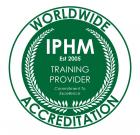Sugar Can Harm Your Health
30th Aug 2021
Consuming sugar can create a quick rise in energy and mood, but a sharp slump follows later on. We then crave more sugar, especially in high-fat foods like ice cream, cakes and pastries, and the cycle continues.
Our blood absorbs sugar quickly, increasing our blood sugar level and making our pancreas over-produce the hormone insulin to deal with it. As a result, it can lead to insulin resistance which is harmful to our body.
We are told to reduce our sugar intake, the main reasons being the risk of obesity and type 2 diabetes. It can also cause teeth problems, inflammation, high blood pressure, and fatty liver, which can all lead to heart problems, stroke and other diseases. It can increase hunger, impair our taste buds, aggravate joint pain, and cause skin problems like acne.
We consume sugar regularly without realising it. It's in so many foods, especially tins, packets, processed foods, and even bread. We become addicted to it without realising it. It takes determination, willpower and discipline to reduce sugar or stop eating it. And you may suffer withdrawal symptoms such as exhaustion, headaches, irritability and mind fog. But these pass, so do try, or at least replace sugar with naturally sweet, healthy foods.
Sugar is a non-nutrient. It has no vitamins and minerals, without which the body's metabolism becomes inefficient, contributing to low energy and poor weight control.
Sugar can cause inflammation. Excess insulin hampers essential enzyme activity, producing arachidonic acid, which primes the body for inflammation.
Vitamin B is used up in metabolising sugar. Lack of Vitamin B can create stress, low energy and numerous health conditions. Sugar forces the body to use up its stores of calcium, potassium, phosphorus, thiamine and chromium. It competes with Vitamin C for transportation into white blood cells. With inadequate Vitamin C, the immune system weakens, making us illness-prone.
Sugar lurks in many foods. It comes in various disguises: glucose, dextrose, sucrose, lactose, galactose, maltose. Fresh fruit has natural sugar called fructose, but fruit also contains many healthy nutrients, so don't stop eating it.
Read food labels, and if the food contains sugar, try to find an alternative.
Commercially produced honey is heat-treated, changing it into a faster-releasing sugar. It also contains pesticides. Search out organic honey which comes directly from the hive.
Artificial sweeteners may reduce calorie intake, but studies show they promote weight gain and erratic blood sugar levels. They are also full of nasty chemicals, some poisonous. Do research the side effects of aspartame which inhabits many processed foods. You may never want to eat it again.
If you're desperate for sweetness, try maple syrup, organic honey and coconut sugar. Although too much of these can create blood sugar peaks and troughs, they contain nutrients, but try to get used to naturally sweet foods and generally eat less sugar.
Copyright © 2021 Brenda Martin





